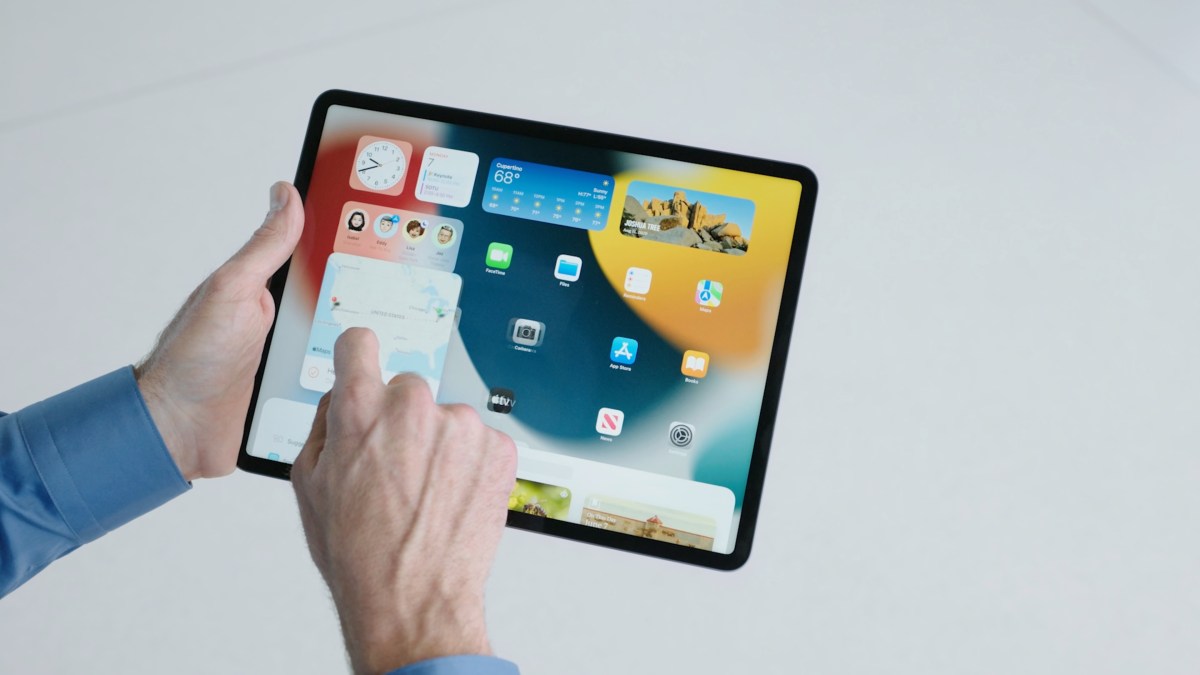The European Union will apply its flagship market fairness and contestability rules to Apple’s iPadOS, the Commission announced today — expanding the number of Apple-owned platforms regulated under the Digital Markets Act (DMA) to four and amping up regulatory risk for the tech giant by bringing its tablet ecosystem in scope.
Apple has six months to ensure iPadOS is compliant with the DMA.
The development could force significant changes on how it operates the tablet platform in the EU as Apple will have to ensure it’s complying with a sweep of DMA mandates, such as a ban on so-called “gatekeepers” being able to self-preference their own services and requirements to allow third party app stores, the sideloading of apps and support for third party payment options.
Apple will also need to open up access to non-WebKit versions of Safari to iPadOS in the next six months, as it has already done on iOS in another DMA compliance step. While business users reaching customers via the tablet platform will have a legal right to FRAND (fair, reasonable and non-discriminatory) terms.
Last fall the Commission designated Apple’s mobile platform iOS, App Store and Safari browser as subject to the DMA’s set of up-front “dos and dont’s” — with the regime containing tough penalties for any violations (of up to 10% of global annual turnover or even more for repeat offences).
Since then Apple has announced a series of changes to how it operates the platforms in the region. But some aspects of its response to the DMA are already under formal investigation for suspected non-compliance. The Commission opened a first wave of formal DMA investigations last month.
Apple’s tablet operating system was not included in the EU’s first DMA designations last year as user numbers did not meet the threshold. However the regulation gives the Commission leeway to consider qualitative criteria, too, where tech giants hold an entrenched and durable position. Which is what happened here.
Announcing the outcome of its market investigation the Commission said it had found business users of iPadOS exceed the threshold elevenfold, while end user numbers are “close” to the threshold and predicted to rise in the near future.
Its investigation also found that both end users and business users are “locked-in” to using iPadOS. “Apple leverages its large ecosystem to disincentivise end users from switching to other operating systems for tablets,” it wrote. “Business users are locked-in to iPadOS because of its large and commercially attractive user base, and its importance for certain use cases, such as gaming apps.”
“[D]espite not meeting the quantitative thresholds laid down in the DMA, [iPadOS] constitutes an important gateway for business users to reach end users and therefore should be designated as a gatekeeper,” the Commission added.
Apple responded to the designation of iPadOS with an emailed statement. “We will continue to constructively engage with the European Commission to comply with the DMA, across all designated services. Our focus will remain on delivering the very best products and services to our European customers, while mitigating the new privacy and data security risks the DMA poses for our users,” the company wrote.
The Commission had allowed itself 12 months to conduct the market investigation of iPadOS. Assuming it instigated the review right after announcing the first DMA designations it’s taken the EU around eight months to conclude this qualitative look at the tablet platform. The Commission confirmed this is the first, and so far only, market investigation it’s undertaken since the DMA got up and running.
In a previous decision, back in February, the EU decided against designating Apple’s iMessage as subject to the DMA — meaning the company avoided an obligation to make its messaging system interoperable.



![[CITYPNG.COM]White Google Play PlayStore Logo – 1500×1500](https://startupnews.fyi/wp-content/uploads/2025/08/CITYPNG.COMWhite-Google-Play-PlayStore-Logo-1500x1500-1-630x630.png)